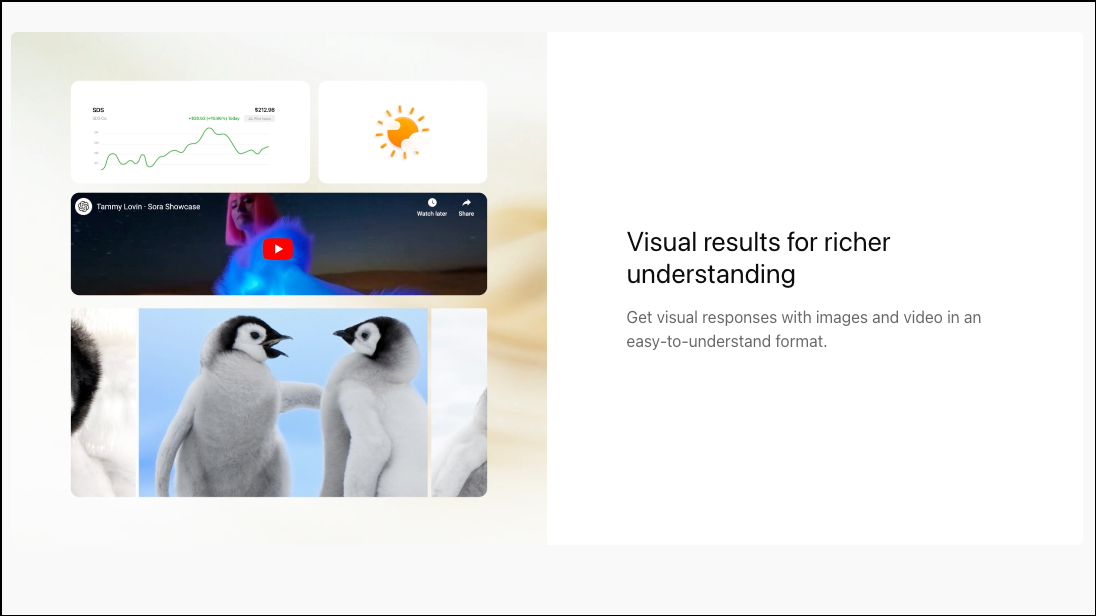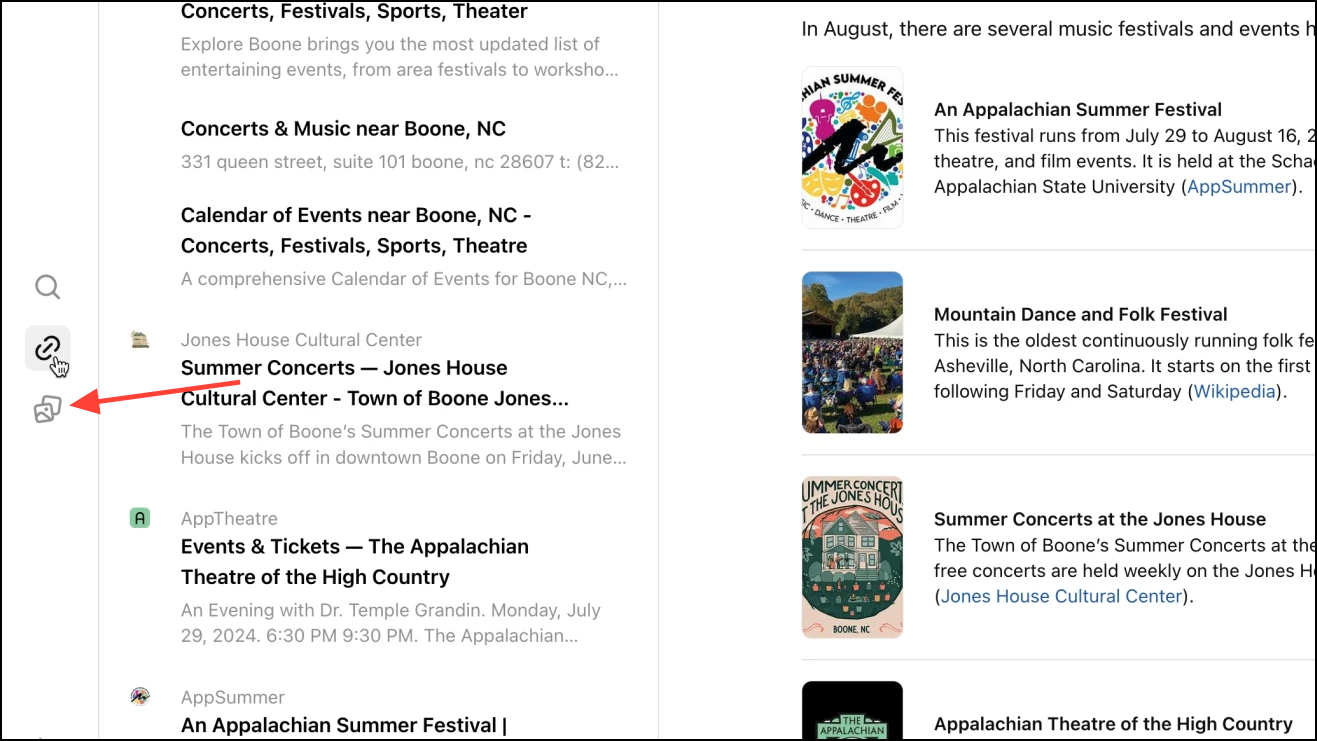- OpenAI is releasing a prototype AI-search engine, to rival Google, Bing, Perplexity, and others.
- SearchGPT will provide quicker answers to user queries by providing real-time, up-to-date, direct information instead of links.
- Though it has a similar interface to ChatGPT, it will also support visual responses like images and videos.
- SearchGPT will be released to limited users starting today and access will be granted off a waitlist.
After speculative rumors and reports about OpenAI's entry into the search field have been running around for months, the company has finally given them solid ground to stand on with its latest announcement. OpenAI is releasing a temporary prototype AI-powered search engine, SearchGPT, that can provide real-time information from the internet for user queries.
The interface of SearchGPT (as previewed in a demo video) is quite similar to ChatGPT, which makes sense since OpenAI ultimately wants to incorporate the search features into ChatGPT. Users enter their queries into a text field and SearchGPT will return an answer formulated from sources around the Internet to serve that query, instead of returning simple links.

SearchGPT's answers will also have a clear attribution link for sources it used, in a move to avoid the controversy surrounding Perplexity. If you're not aware, the latter is an AI search engine similar in principle to SearchGPT that returns answers to users' queries. However, it has lately been under fire for plagiarizing answers from publications like Forbes, CNBC, etc. without giving the original reporting any credit. OpenAI is playing safely in the wake of this and emphasizing (quite heavily, if I might add) its focus on responsible credit attribution.
Apart from being able to click on the attribution links to visit the websites, users will also be able to discover and engage with more results in a sidebar.
SearchGPT will also share a similar conversational interface to ChatGPT where users will be able to ask follow-up questions to their queries and the AI search engine's answer to them will be based on the shared context of all the queries.
SearchGPT will also support visual results like images and videos, but OpenAI hasn't provided any more information on what exactly this will entail.

It seems to me that users will be able to switch to 'visual responses' from the option on the sidebar.

The company is releasing the product in a limited prototype at the moment in hopes of getting feedback to improve the product before any wider distribution. Users can join a waitlist to get access (if they're approved; apparently they'll only give access to 10,000 users initially as reported by The Verge).
With the scrutiny that AI products are under right now, especially AI search engines, (recent debacles like Google's AI overviews telling users to put glue on pizza or eat rocks) it seems like the right move. AI products are prone to hallucinations and providing wrong information, and SearchGPT seems to be no exception.
In fact, as reported by The Atlantic, the demo video itself in the announcement post for SearchGPT includes inaccurate results! The video in question, where SearchGPT answers the query music festivals in boone north Carolina in august includes an answer that shows the wrong dates for a music festival it's suggesting.
OpenAI is also partnering with publishers and creators to highlight and deliver high-quality content to users, along with launching a way where publishers will be able to control how their content will appear in SearchGPT as they're "committed to a thriving web ecosystem".
This seems to be the sentiment most companies want to highlight when releasing a new AI search engine product after Google's AI overviews brought into question the way these AI engines will cannibalize traffic from websites (Microsoft highlighted similar sentiments in their release statement for Generative Search Experience announced for Bing)
They also said that SearchGPT is separate from their generative AI models, and even if publishers have opted out of generative AI training, their site can appear in SearchGPT's results.

